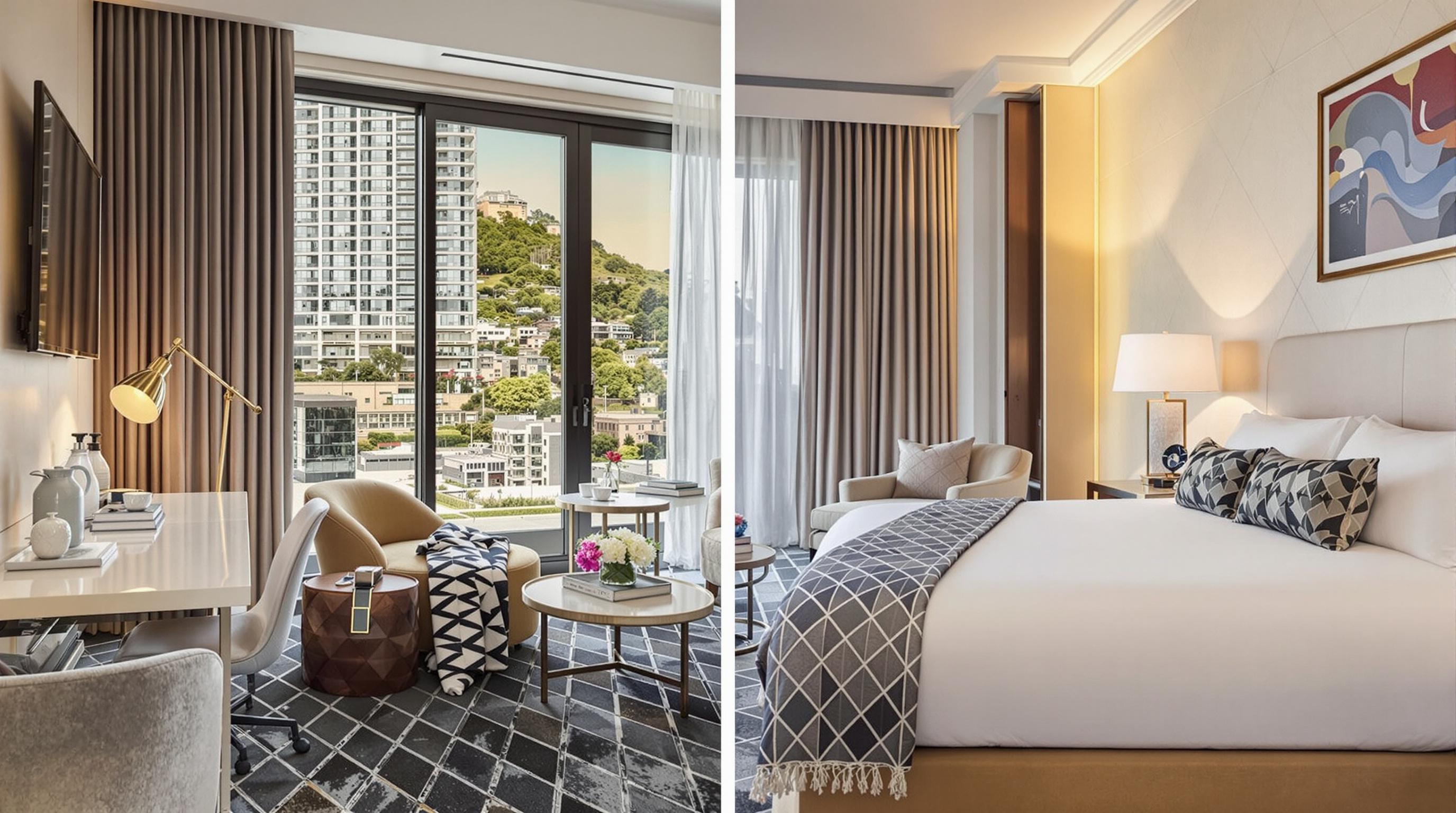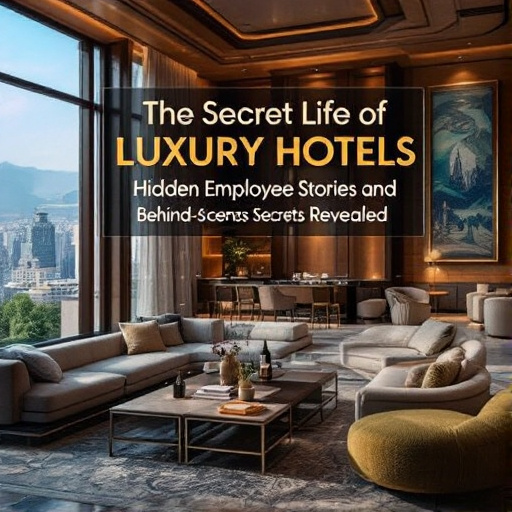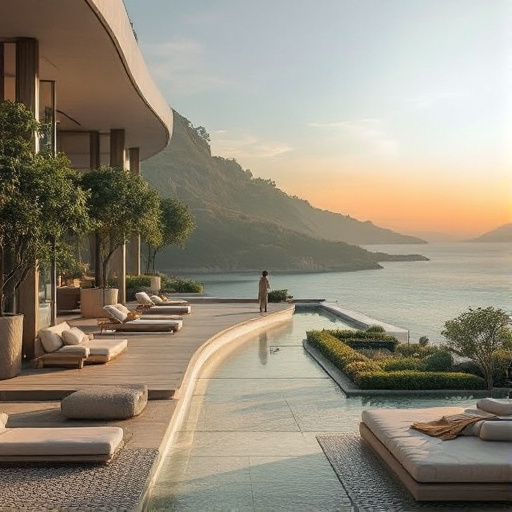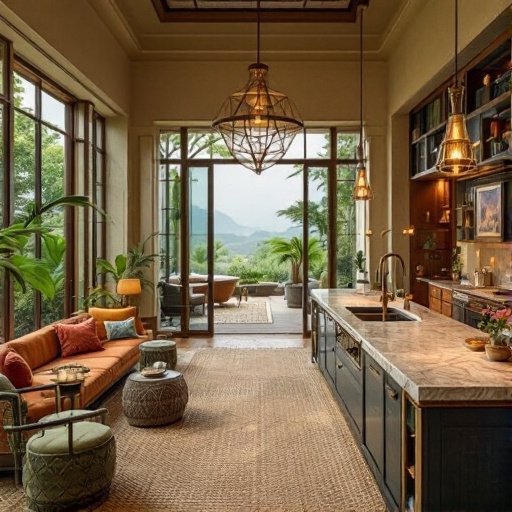Featured Articles
- 7 Unseen Amenities in Luxury Hotels That Transform a Stay into an Exclusive, Personalized Experience
- "Beyond Opulence: Exploring the Rise of Sustainability in Luxury Hotel Design"
- "How Eco-Friendly Luxury Hotels Are Reshaping Sustainable Travel: A Glimpse Into the Future of Opulence"
- The Rise of Eco-Luxury: How Sustainability is Shaping the Future of Upscale Hospitality
- The Rise of Eco-Luxury: How Sustainable Practices are Redefining High-End Hospitality
The Rise of Eco-Luxury: How Sustainability is Shaping the Future of Upscale Hospitality
The Rise of Eco-Luxury: How Sustainability is Shaping the Future of Upscale Hospitality
The eco-luxury movement is rapidly transforming upscale hospitality, prioritizing sustainability without sacrificing comfort. This article explores how eco-conscious practices are reshaping the industry and the experiences of travelers, offering examples, case studies, and insights that appeal to a range of ages and preferences.
Understanding Eco-Luxury: A New Paradigm
Eco-luxury is more than just a buzzword; it’s a movement that seamlessly blends opulence with environmental consciousness. Imagine sipping a hand-crafted cocktail made from local, organic ingredients while lounging by a solar-heated pool – it’s the modern traveler’s dream!
Changing Consumer Attitudes Toward Sustainability
According to a report from Booking.com, 72% of travelers believe that it is important to stay in sustainable accommodations. With millennials and Gen Z emerging as a dominant force in the travel industry, this penchant for sustainability is reshaping expectations. Gone are the days when luxury meant opulence measured in diamonds and marble; today’s luxury travelers are more inclined to equate high-end experiences with practices that benefit the environment."
These younger travelers would rather choose a hotel with green certifications than one known for extravagance alone.
Case Study: The Branson Effect
In 2016, Richard Branson's Virgin Group launched the first eco-luxury resort in the British Virgin Islands. Necker Island is renowned not just for its lavish amenities but also for its commitment to sustainability. The resort harnesses renewable energy, employs local staff, and even has an organic garden to supply fresh produce. Branson himself stated, "Sustainability is the new luxury." This illustrates a growing trend where luxury brands embrace environmental sustainability at their core.
Pursuing Wellness Through Sustainability
Eco-luxury isn’t just about accommodations; it extends to overall wellness. Modern travelers are increasingly seeking holistic experiences that connect them to nature. Properties such as the Six Senses brand focus on wellness combined with eco-friendly practices, offering everything from organic meals to spa treatments utilizing locally sourced ingredients.
Using Technology to Enhance Sustainability
In the age of technology, hotels are utilizing innovative solutions to enhance their sustainability efforts. For instance, the smart hotel concept is taking off, with many establishments adopting energy management systems to optimize consumption. According to the American Hotel & Lodging Association, smart technology can reduce hotel energy consumption by up to 30%. Who would’ve thought that luxury and sustainability could mesh so effectively?
Adventurous Eco-Tourism: An Emerging Trend
Adventure travel and eco-luxury are melding together. Travelers are now opting for excursions that not only fulfill their thirst for adventure but also further sustainable development. For example, eco-friendly lodges like Inkaterra Machu Picchu Pueblo Hotel in Peru promote conservation and employ local communities. Travelers here engage in activities like low-impact hiking that foster respect for nature, all while enjoying lavish accommodations.
Conversations Around Eco-Luxury
Let’s face it, discussing sustainability can sometimes feel like a bore—almost like discussing your Aunt Edna's cat collection at a family gathering. But here’s the twist: eco-luxury is *cool*! Think of it like this: would you rather stay somewhere stuck in the past or a place that embraces the future while being smoother than a vintage wine? This is what today's travelers want, and hotels are listening.
Luxury Brands Leading the Way
It’s not just small hotels that are capitalizing on the eco-luxury trend; many recognized luxury brands are also stepping up their game. Brands like Four Seasons and Marriott have implemented programs to reduce waste, conserve water, and engage in community initiatives. For instance, Marriott International’s sustainability and social impact platform, Serve 360, aims to reduce environmental impact, emphasizing measurable results and transparency in their goals.
A Compelling Shift in the Culinary Landscape
Culinary experiences have become a significant spotlight in the world of eco-luxury. Dining options are consistently evolving, placing emphasis on organic, sustainable ingredients while minimizing food waste. Consider hotels that partner with local farms, or those that produce their own goods. For instance, the Farm-to-Table movement has infiltrated upscale dining in hotels, where chefs with Michelin stars are crafting menu items focusing on seasonal and sourced ingredients. It’s not just food; it’s a statement of commitment.
The Paradox of Opulence and Responsibility
Luxury and eco-friendliness might seem like contradictory concepts, but they are becoming increasingly synergistic. Take a moment to consider: responsibility can be luxurious. Yes, enjoying the beauty of a destination while knowing your footprint is minimal can elevate the experience to extraordinary heights—like discovering a hidden treasure.
The Economic Impact of Eco-Luxury
Statistics show that consumers are willing to pay more for sustainable products and services—around 55% according to a Nielsen report. The eco-luxury trend isn’t merely a fad; it’s proving to be a profitable business model that attracts discerning patrons willing to invest in their values. Hotels that integrate sustainability are not just participating in a trend; they are capitalizing on a robust market opportunity.
Travelers Seek Authenticity
In a world teeming with cookie-cutter hotels and attractions, travelers are craving authenticity. When eco-luxury takes front and center, guests experience genuine connections to the places they visit. Consider eco-lodges where accommodation blends into the surroundings and activities directly contribute to local conservation efforts. Such authenticity enriches the travel experience, allowing guests to feel like concerned citizens rather than mere tourists.
Challenges in the Eco-Luxury Journey
While the rise of eco-luxury offers promising developments, it’s not without challenges. Many hotels struggle with the potential higher costs associated with adopting sustainable practices. Education and awareness about the benefits of eco-friendly practices are crucial to overcoming skepticism. An interesting aspect to point out is that consumers sometimes have misconceptions about sustainability efforts being less luxurious. Hotels need to communicate that sustainability doesn’t compromise quality.”
The Role of Partnerships and Community Engagement
Collaboration is at the heart of eco-luxury. Partnerships between hotels, local communities, and eco-focused organizations can amplify the impact of sustainability initiatives. For instance, the InterContinental Hotels Group launched a partnership with the World Wildlife Fund to enhance its sustainability practices and community outreach. Such collaborative efforts contribute not just to hotel success but also to regional development and environmental preservation.
Consumer Education: Breaking Down Misconceptions
It’s essential to educate guests about their choices; many aren’t aware that luxury can coexist with eco-friendliness. How about a hotel offer workshops on minimizing personal footprints while traveling? Or perhaps a complimentary sustainable travel guide upon booking? Well-informed travelers are likely to appreciate and support hotels that emphasize sustainability.
A Glimpse into the Future of Eco-Luxury
The horizon looks bright for eco-luxury in upscale hospitality. As long as eco-conscious consumers keep demanding greener solutions and hospitality brands continue innovating, the potential for change is ever-present. Those who jump aboard this eco-luxury movement can carve a unique narrative in the travel industry that’s appealing across generations.
Conclusion: A Commitment to Change
Eco-luxury is not just a trend; it represents a commitment to a better future—one that balances comfort and opulence with responsibility towards the planet. Travelers today seek experiences that align with their values, and the hospitality industry is ready to deliver. With consumer awareness growing, sustainable practices are poised to become the hallmark of upscale travel, leading us toward a more luxurious, environmentally friendly future. Who wouldn’t want a bit of elegant conscience in their travels?



